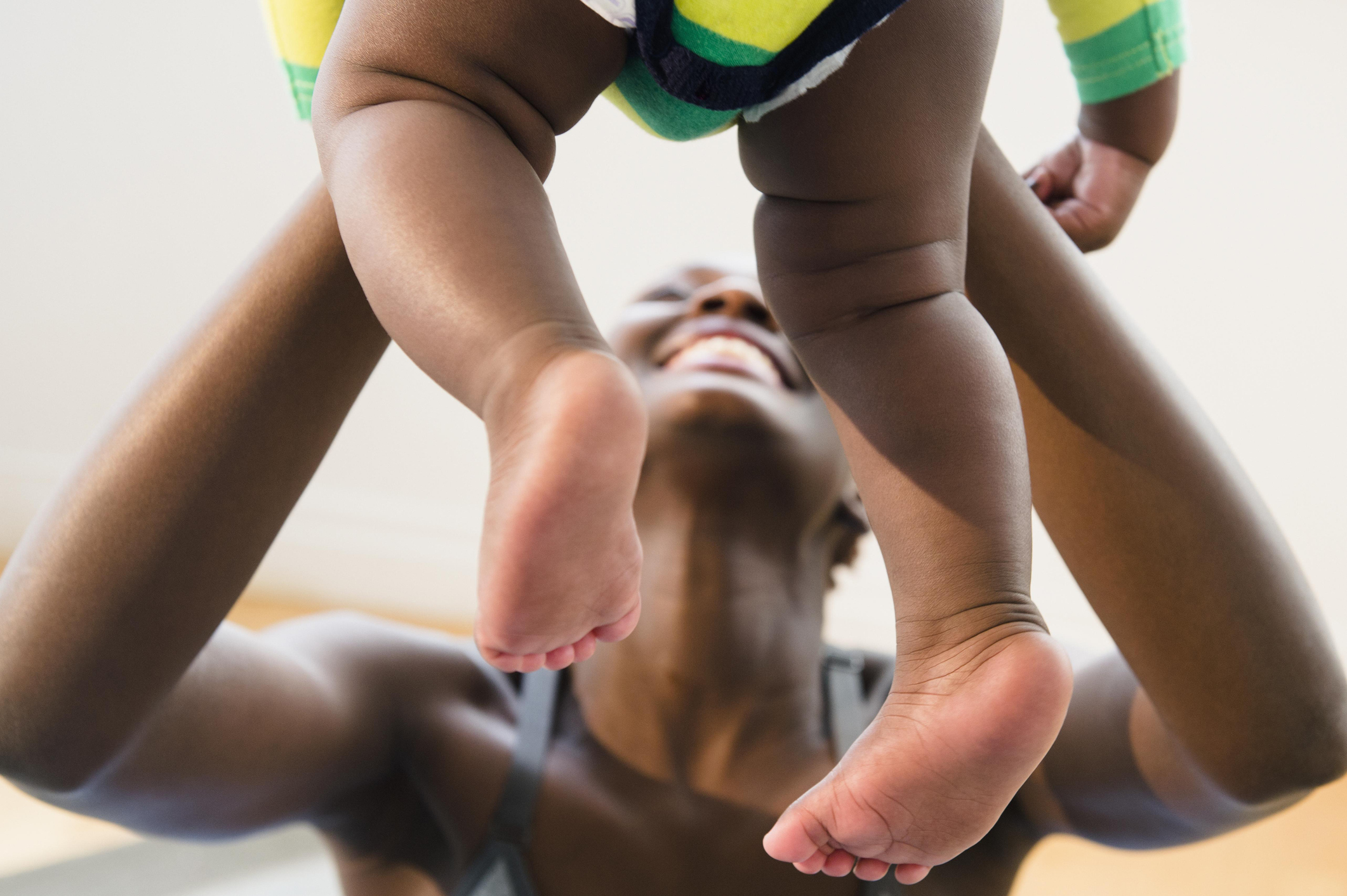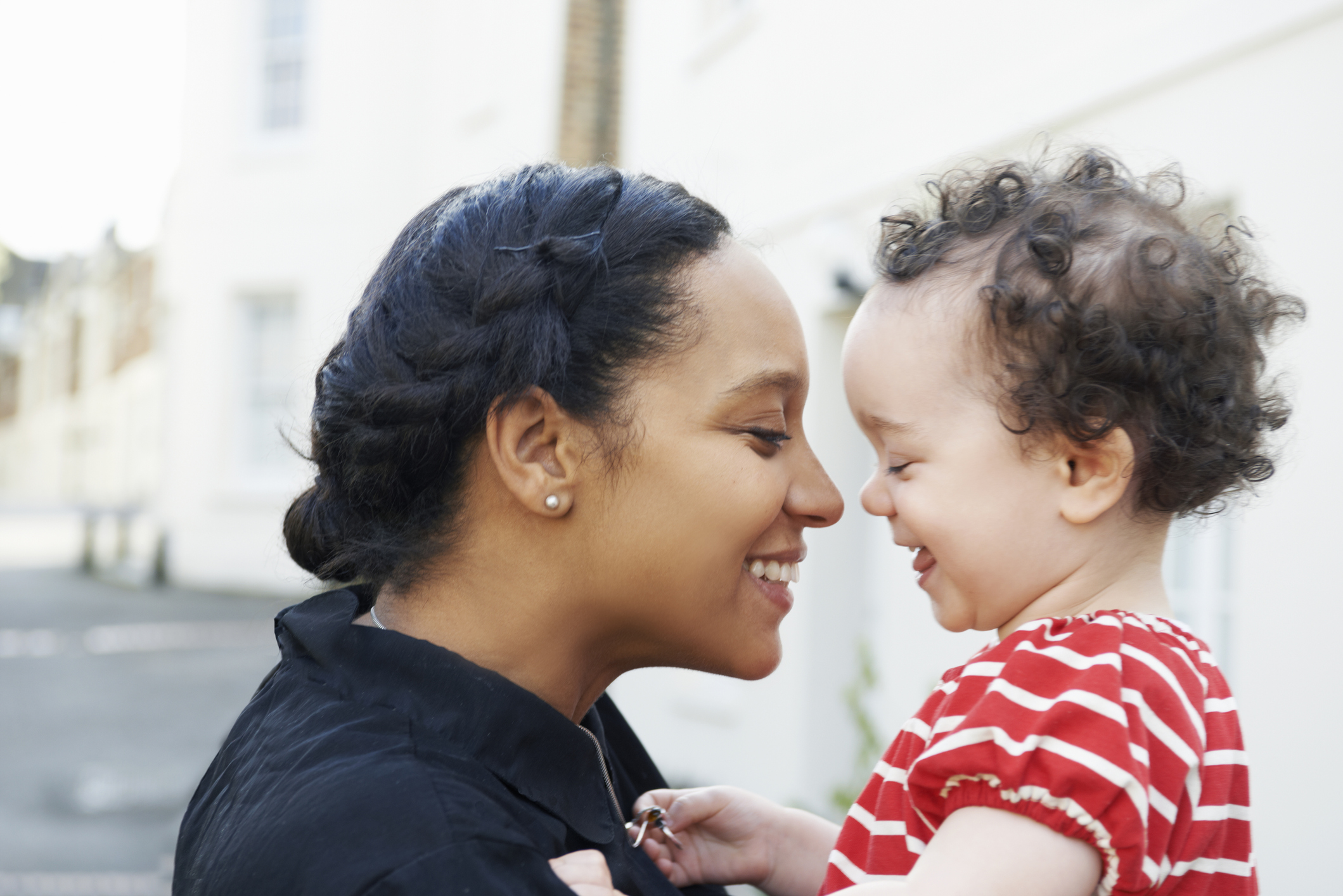
1 in 5 new mums are affected by a mental health disorder of some kind.
Did you know? 800,000 new mothers are affected by a maternal mental health disorder each year in the US. Although one in five new mums will be affected, only 25% get treatment, with 75% going without professional evaluation at all.
Worldwide, between 10 to 20% of women who have just given birth will experience a mental health condition, according to the World Health Organisation. In the US, while one in eight women report symptoms of depression after giving birth, over 50% of pregnant women with depression are not treated, according to the CDC.
"While mental health in general is becoming more widely discussed and accepted in popular culture - just look at the reaction to brave athletes like Naomi Osaka and Simone Biles who spoke out about their mental health - there is still a lingering stigma that can prevent many people from seeking treatment and support when they’re struggling," explains maternal mental health expert and chief medical officer at LifeStance Health doctor Anisha Patel-Dunn.
"For new mums, the chaos, stress and expectations associated with the initial months of motherhood can often trigger mental health concerns that feel misplaced during what is supposed to be an exciting and happy time," she continues.
Add the year of lockdown to the mix and - yep, you guessed it - it's no surprise that many mental health clinicians are seeing an increase in both the severity and frequency of cases at current. The COVID-19 pandemic caused social isolation for many - but especially for new mums, may of whom had to give birth in a hospital bed alone.
That's why we've spoken to Patel-Dunn. Here, she shares her wisdom, breaking down why maternal mental health issues need to be addressed more, plus her five top tips for new mums or mums-to-be keen to safeguard their own mental health during such a period of change.
Remember: you are not alone.
Celebrity news, beauty, fashion advice, and fascinating features, delivered straight to your inbox!
Maternal mental health: how to protect your wellbeing as a new mum
Also referred too as maternal mental health, the phrase is primarily used to describe a woman’s mental state during pregnancy and the first year after birth, shares Patel-Dunn.
"All women can experience a mental health condition during this time, and it’s important to remember that there’s no one face to maternal mental health," she continues. "Someone’s internal experience could be different from what they’re projecting externally, and every person’s individual experience is going to be very unique."

Maternal mental health issue symptoms
Aka, what are the main symptoms you might experience if you're struggling with your mental health as a new mum? There are a whole range of mental health disorders you could face, from depression, to anxiety, to PTSD, to trauma.
As a new mum, it’s very common to experience a range of emotions following your baby’s birth, shares Patel-Dunn. These include:
- Sadness
- Loneliness
- Anxiety.
"You'll sometimes have heard these feelings referred to as the baby blues,'" Patel-Dunn continues.
If you’re finding it difficult to get through the day or care for yourself or your baby, you may be experiencing a more serious condition called postpartum depression. Symptoms of postpartum depression can include:
- Feeling hopeless
- Feeling helpless
- Questioning your ability to take care of your newborn
- Low sense of self
- Low self-esteem
- Inability to sleep
- Difficulty concentrating.
Again, Patel-Dunn stresses here that everyone’s mental health experiences will be different. "Whether you are experiencing mild or severe symptoms, it’s extremely important to reach out for help and support," she stresses.

Maternal mental health resources
Know this - Patel-Dunn wants all new mums to feel encouraged enough to ask for help, if they need it.
"There are all kinds of resources - both virtual and in-person - that can help, regardless of what you’re going through," she explains.
1. Don't be afraid
First tip from Patel-Dunn: don’t be afraid to ask for help.
"It could be a loved one, a friend or a family member," she explains. "Just remember, they won't mind offering assistance if you need help getting an appointment with a mental health provider."
Got that? You are not a burden, so don't talk yourself into thinking you are one.
2. Utilise local support groups
Once you've opened up about what you're going through, Patel-Dunn says that finding a supportive community can be very beneficial when recovering from a maternal mental health condition.
"A great place to start is looking up local online support groups or help hotlines in your area," she shares.
Not sure where to start? Try the following for helpful resources and more information generally:
- The Centre for Women’s Mental Health
- Postpartum Support International
- National Centre for Education in Maternal and Child Health.
3. Talk to a qualified professional
Okay, so you spoke to your partner / friend / family member, and then read up on the thousands of other women worldwide who are going through what you're going through.
Next up: it's time to check in with a professional so they can help you decide the best course of action. "A licensed therapist can help you understand and overcome a mental health condition," explains Patel-Dunn.
Our guide to online therapy and the best mental health apps currently available may just help.
4. Try medication
Medication won't be for everyone, and you should only opt for meds if your doctor has prescribed them, but often, they can help with sleep problems, anxiety issues and symptoms of depression, too, the health professional explains.
5. Prioritise self care
For new mums and mums-to-be, it can be difficult to find the time to prioritise self care, explains Patel-Dunn.
However, it's a super important step to support your overall mental health, she stresses. Why? Well, because 'by taking care of your mental health, you will be better able to manage stressors when they do arise,' she explains. Plus, 'you'll have an overall better quality of life.'
Read our guide to the best self care ideas - that are totally free! - now if you need a little inspiration on that front.
And before you go, know this: just as postpartum physical recovery is different for each mum, mental health may look different as well, shares the expert. "The best way to end the stigma around mental health conditions, including those impacting new mums, is to encourage candid conversations about what mental health looks like and bring awareness to the diversity of experiences," she concludes.

Ally is Marie Claire UK's Senior Health and Sustainability Editor, a well-regarded wellness expert, ten-time marathoner, and Boston Qualifying runner.
Utilising her impressive skillset and exceptional quality of writing, she pens investigative, review and first-person pieces that consistently demonstrate flair and originality.
As well as writing, Ally manages a team of freelancers, oversees all commissioning and strategy for her pillars, and spearheads the brand's annual Women in Sport covers, interviewing and shooting the likes of Mary Earps, Millie Bright, and Ilona Maher. Shortlisted for three BSMEs and winning one in 2022, Ally lives and breathes her verticals: her eye for a story and connections within the wellness sphere are unrivalled. Follow Ally on Instagram for more.
